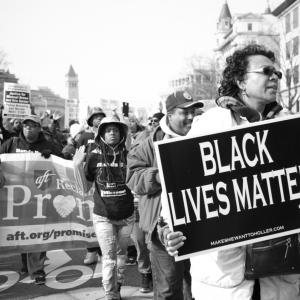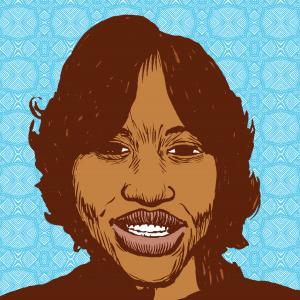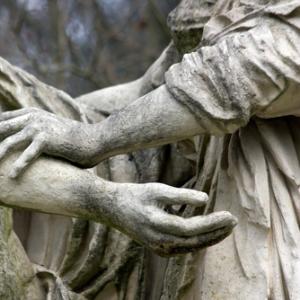Christena Cleveland is a social psychologist and the author of Disunity in Christ: Uncovering the Hidden Forces that Keep Us Apart.
Posts By This Author
Civil Rights Movement 2.0
The zeitgeist is clear. Much like Emmett Till’s murder in 1955 sparked the civil rights movement, the tragic string of murders of blacks in 2014 catalyzed another movement, the #BlackLivesMatter movement. This movement picks up where the civil rights movement left off, addressing systemic racial injustice in the legal and penal system, educational system, and economic system. In some ways, the battles we fight are more challenging than the ones our grandparents fought. Undeniably, we face off in a more complex world and against forms of systemic racism that are so subtle that they are almost invisible. Nevertheless, due to a unique combination of gifts and experiences, I’m hopeful that my generation of black millennials is ready to lead us on to a more equitable society. Here’s why.
1. We are propelled by the prophetic legacy of the past.
With a technological savvy that gives us unprecedented access to the true history of our people, and as perhaps the last generation to breathe the same air as the civil rights generation, we draw upon the legacies of the past as we move forward. When I sense that my capacity to forgive is waning, I recall my recent conversations with several survivors of the 16th Street Baptist Church bombing in Birmingham, Ala., and I’m reminded of the inner healing that forgiveness promises. When I am tempted to pander to the powers that be, I call my radical granddad and ask him to tell me again about the many Black Panthers meetings that took place at the church he pastored in Berkeley, Calif., in the 1960s. When I feel that I’m losing my courage, I read Ida B. Wells’ autobiography and am reminded that we are not alone. We are connected — part of a chain of black activists, each generation inspiring the next. Our heroes guide us every day.
White Men, Black Female Bodies, and Renisha McBride
In the early morning of Saturday, Nov. 2, Renisha McBride, 19-year-old black woman from Detroit, crashed her car in Dearborn, a predominantly white Detroit suburb. Lacking battery power for her cellphone, she approached a nearby home to ask for help. Theodore Paul Wafer, a white man, answered the door. He responded to her knock by shooting a firearm through a locked screen door, striking Renisha in the face and killing her. Police initially said that the white man mistook her for an intruder and shot her in self-defense, even though Renisha was unarmed and there is no evidence of her attempting to enter the house uninvited. Two weeks passed before the Wafer was charged with second-degree murder and arrested. Wafer maintains that he acted in self-defense. If the recent George Zimmerman acquittal is any indication, it is entirely possible that justice will not come to pass.
A black woman is dead because a white man decided that she should die. A black woman is dead and there is no guarantee, that in 21st-century America, justice will be done.
This is America and this is not new.
I’d never heard of Renisha McBride until her death became a national news story a little more than two weeks ago. But in a way, I’ve known Renisha my whole life. Renisha’s story echoes the stories of black women across the arc of American history.
How Feeling Each Other’s Pain Changes Everything
Strange but beautiful things happen when we begin to identify with people who are culturally different. A few years ago, I became friends with Peter, a guy at my church who also happened to be an undocumented immigrant. One day over lunch, he shared that his mother (whom he hadn’t seen in 15+ years) had recently been diagnosed with a terminal disease. He desperately wanted to visit her, but due to his immigration status, he knew that if he left the U.S. he wouldn’t be allowed to return. Given his obligations to his family in the U.S., Peter made the heart-breaking decision to not to visit his dying mom.
As a U.S. citizen, I hadn’t personally experienced the trials of being undocumented or felt the frustration of geographic immobility while a loved one approached death in a far off land. But throughout my friendship with Peter — getting to know his family in the U.S., listening to him share about the harrowing challenges he experienced on a daily basis, and seeing photographs of his life and family in his home country — I got a glimpse of the world from his perspective. In many ways, Peter’s life was marked by sorrow and loss – and that was more evident than ever during our lunch conversation that day.


